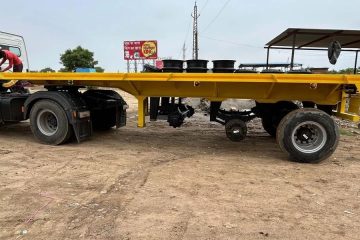Employer of Record Services in Democratic Republic of Congo

The Democratic Republic of Congo (DRC) is one of Africa’s most resource-rich nations, holding vast reserves of cobalt, copper, gold, and diamonds. Its strategic location in Central Africa, combined with its growing telecommunications, energy, and infrastructure sectors, makes it an attractive destination for foreign investment. However, navigating the country’s labor laws, payroll systems, and compliance landscape is complex. Partnering with an Employer of Record in Democratic Republic of Congo allows international companies to employ local and expatriate staff without the administrative and legal burden of setting up a local entity.
Understanding Employer of Record Services
An Employer of Record (EOR) acts as the legal employer of staff on behalf of a client company. While the client directs business operations and daily work, the EOR assumes responsibility for employment administration, compliance, and risk management.
In the DRC, EOR services typically include:
- Drafting and registering employment contracts in compliance with labor laws
- Administering payroll in Congolese franc (CDF) with correct tax and social deductions
- Registering employees with the Institut National de Sécurité Sociale (INSS)
- Managing statutory leave, benefits, and severance requirements
- Supporting visa and work permit applications for expatriate employees
This model ensures legal compliance and reduces barriers for international businesses entering or expanding in the Congolese market.
The Employment Framework in DRC
Employment relationships in the DRC are governed by the Labor Code, which sets out obligations for employers and rights for employees. For foreign companies, compliance is critical to avoid disputes, penalties, or restrictions on operations.
Key features of the labor environment include:
- Employment Contracts: Contracts must be written, specifying job role, remuneration, working conditions, and termination rules. Both fixed-term and indefinite contracts are permitted. Probation periods are allowed but subject to legal limits.
- Working Hours: The standard workweek is 45 hours, typically distributed across six days. Overtime is strictly regulated and must be compensated at premium rates.
- Leave Entitlements: Employees are entitled to 12 working days of paid annual leave after one year of service, with additional days earned based on seniority. Maternity leave lasts 14 weeks, while sick leave is granted with medical certification.
- Social Security Contributions: Employers contribute approximately 9% of gross salary to INSS, covering pensions, healthcare, and family benefits. Employees contribute around 5%.
- Termination Procedures: Terminations must be justified and follow lawful procedures. Severance pay is calculated based on seniority, contract type, and cause of termination.
Without local expertise, navigating these obligations can be difficult, making EOR services an efficient solution.
Why Employers Choose EOR Services in DRC
EOR solutions are increasingly used by international organizations due to the unique challenges of operating in the Congolese market.
1. Accelerated Market Entry
Setting up a subsidiary in the DRC involves lengthy registration processes with government ministries, tax authorities, and social institutions. An EOR allows companies to begin hiring within weeks, reducing entry delays.
2. Compliance and Risk Management
Labor law enforcement in the DRC can be unpredictable, with frequent regulatory updates. An EOR ensures compliance with employment, payroll, and tax rules, reducing exposure to disputes or sanctions.
3. Payroll Administration
Payroll in the DRC requires careful management to avoid penalties. An EOR ensures:
- Accurate calculation of wages and overtime
- Withholding and remittance of personal income tax
- Employer and employee INSS contributions paid on time
- Monthly and annual filings with relevant authorities
4. Workforce Scalability
EOR services enable companies to scale their workforce up or down in response to project requirements, supporting both short-term initiatives and long-term growth strategies.
5. Expatriate Hiring Support
International companies often deploy foreign specialists to the DRC’s mining, energy, and infrastructure projects. An EOR manages work permits, residence visas, and renewals while ensuring compliance with localization requirements.
Immigration and Expatriate Employment
Employing expatriates in the DRC requires obtaining a work permit and residence visa before employment begins. The process involves several ministries and can be time-consuming.
An EOR simplifies expatriate hiring by:
- Drafting compliant employment contracts for permit applications
- Submitting documentation to the Ministry of Labor and Immigration
- Managing visa renewals and extensions
- Advising on government localization policies that prioritize local hires
This ensures foreign workers are employed legally and efficiently.
Cultural and Workforce Insights
Understanding local workforce dynamics is essential for effective HR management in the DRC.
- Languages: French is the official language of business and administration, while Lingala, Swahili, Kikongo, and Tshiluba are widely spoken across different regions.
- Workplace Culture: Respect for authority and hierarchy is important. Decision-making is often centralized.
- Public Holidays: Both national and religious holidays are observed, and workforce scheduling must account for them.
- Unions: Labor unions are active in industries such as mining and public services, and employers must respect collective bargaining agreements.
An EOR helps companies adapt HR strategies to local cultural and labor expectations.
Choosing the Right Employer of Record Partner in DRC
Selecting the right EOR partner ensures compliance and operational efficiency. Companies should evaluate providers based on:
- Local Knowledge: Deep expertise in Congolese labor law, payroll, and immigration procedures
- Proven Compliance Record: Experience managing obligations without legal disputes or penalties
- Technology Infrastructure: Secure, transparent payroll systems with real-time reporting
- Regional Reach: Ability to support operations across Central Africa and neighboring markets
- Strategic Advisory: Capacity to provide workforce planning, compliance updates, and HR best practices
A reliable EOR partner provides not just compliance but also long-term workforce stability.
Strategic Outlook for Employers in DRC
The Democratic Republic of Congo’s economy is expanding, driven by its mining sector and increased interest in energy and infrastructure projects. While opportunities are significant, the market presents administrative, regulatory, and logistical challenges for foreign investors.
Employer of Record services provide a compliant, flexible, and cost-effective pathway for international businesses to operate in the DRC without establishing a subsidiary. This model reduces compliance risks while enabling agility in workforce deployment.
Conclusion
Employer of Record services in Democratic Republic of Congo allow foreign companies to build compliant workforces quickly and efficiently. By managing employment contracts, payroll, taxation, and expatriate processes, EOR providers reduce administrative burdens and ensure compliance. For HR professionals, executives, and global business leaders, this model delivers the agility and risk mitigation necessary to succeed in one of Africa’s most resource-rich and strategically significant markets.











